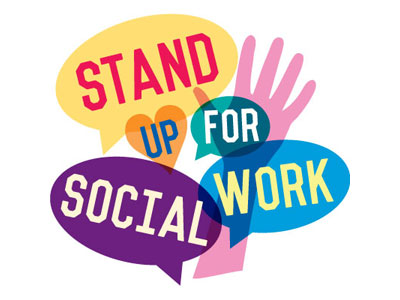
The Children and Social Work Bill, slipped out on Friday afternoon, contains far more than a smoothing out of social work’s rough edges in the name of boosting standards.
Instead this is a fundamental rewiring of the legislation underpinning the profession in England.
The bill contains two key planks of reform. The first focuses on services, with powers to ‘exempt’ councils from certain statutory duties. The second concerns a reshaping of social work itself. Here the headline measure is the creation of a new regulator and professional standards body for the profession.
The new body, ministers promise, will have a “relentless focus on social work”. The inference is that social work’s current regulator, the Health and Care Professions Council, is too distracted by its regulation of 15 other professions to give social work the attention it needs and deserves.
Yet dig beneath the surface and this bill promises far more than simply a social work-focused version of the current regulatory approach.
For all the misgivings social workers may have about the HCPC, the regulator is financially and operationally independent of government. The Children and Social Work Bill will potentially put a government-controlled body in its place, or even see social workers directly regulated by the government itself.
Fundamental shift
This shift is fundamental. It allows government to determine key foundations of social work in England. This includes but is not limited to: determining the eligibility criteria for registration, setting the professional standards practitioners must uphold, dictating the conditions social work degree programmes must meet (remember it’s only a few years since the then-education secretary slammed the “dogma” taught on courses) and deciding the scope and functioning of the fitness-to-practise regime.
As important as the changes themselves are the means by which the government is introducing them. Normally reforms of this importance would be fleshed out in primary legislation (the bill), with the small print of how they work set out in regulations.
Yet the Children and Social Work Bill’s primary legislation is broad and often opaque. The full scope of several significant powers is left open to secondary legislation (or regulations) which have yet to be revealed.
For example, the bill allows the regulations to determine who will regulate social workers and, in a marked shift from a regulatory system based on public protection not punishment of professionals, even introduce a range of new criminal offences for social worker misconduct.
‘Greater ease and less scrutiny’
Why does this matter? In a nutshell because this way of operating reduces scrutiny. Yes the bill requires the government to consult on the regulations. But in practice the level of parliamentary interest and debate of secondary legislation pales in comparison to major changes. As is pointed out by a House of Lords report, secondary legislation allows government to pass laws “with greater ease and with less scrutiny”.
The reforms put forward by the government may be welcomed by professionals. They may not. Whatever your stance on the reforms, they’re certainly radical – one legal expert told us it is “unprecedented” to create a health or care regulator through secondary legislation.
By driving through the changes on the back of secondary legislation, the government could make sweeping changes to social work with inadequate scrutiny. This is a particular risk in the current climate given the Labour party’s apparent lack of interest (at least to date) in engaging with the social work reforms.
The Department for Education clearly believes in its vision for social work. It is promising to invest in the profession at a time funding is sorely needed. In the chief social worker for children, the department has someone who has worked on the frontline and is passionate about creating practice conditions she feels give children’s practitioners and the families they work with the best chance for success.
Yet, as with all legislative change, there will be positives and pitfalls in these reforms. Significant questions remain over what the attention on children’s social work means for practitioners in other settings, notably adult services.
Good policymaking demands strong scrutiny. Praising social workers as “unsung heroes” is no replacement for offering those same professionals, the public they serve or the Commons and Lords, the chance to properly shape them.
The government has already shown a lack of interest in consulting the profession on key changes. Now, in its zeal for reform, it is treating proper scrutiny of legislation as a distraction, not a necessity.


 Bournemouth, Christchurch and Poole
Bournemouth, Christchurch and Poole  Hampshire County Council
Hampshire County Council  Lincolnshire County Council
Lincolnshire County Council  Norfolk County Council
Norfolk County Council  Northamptonshire Children’s Trust
Northamptonshire Children’s Trust  South Gloucestershire Council
South Gloucestershire Council  Wiltshire Council
Wiltshire Council  Wokingham Borough Council
Wokingham Borough Council  Children and young people with SEND are ‘valued and prioritised’ in Wiltshire, find inspectors
Children and young people with SEND are ‘valued and prioritised’ in Wiltshire, find inspectors  How specialist refugee teams benefit young people and social workers
How specialist refugee teams benefit young people and social workers  Podcast: returning to social work after becoming a first-time parent
Podcast: returning to social work after becoming a first-time parent  Podcast: would you work for an inadequate-rated service?
Podcast: would you work for an inadequate-rated service?  Family help: one local authority’s experience of the model
Family help: one local authority’s experience of the model  Workforce Insights – showcasing a selection of the sector’s top recruiters
Workforce Insights – showcasing a selection of the sector’s top recruiters 

 Facebook
Facebook X
X LinkedIn
LinkedIn Instagram
Instagram
Comments are closed.